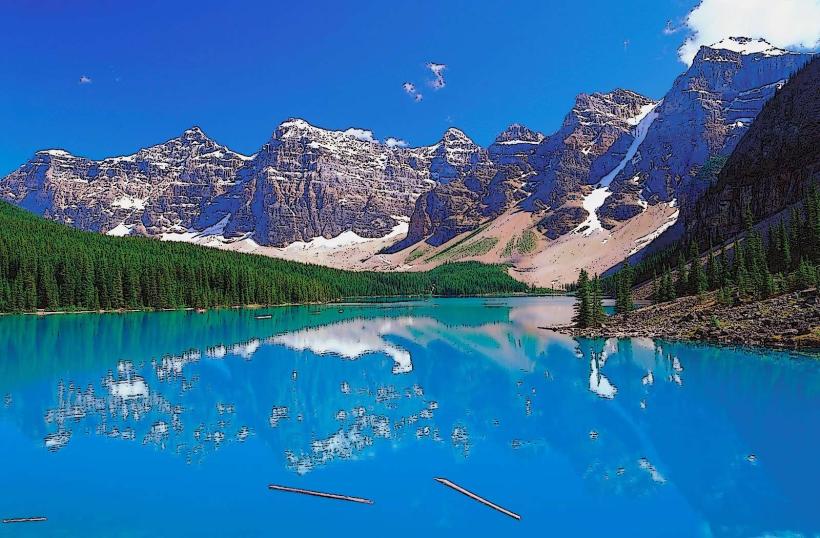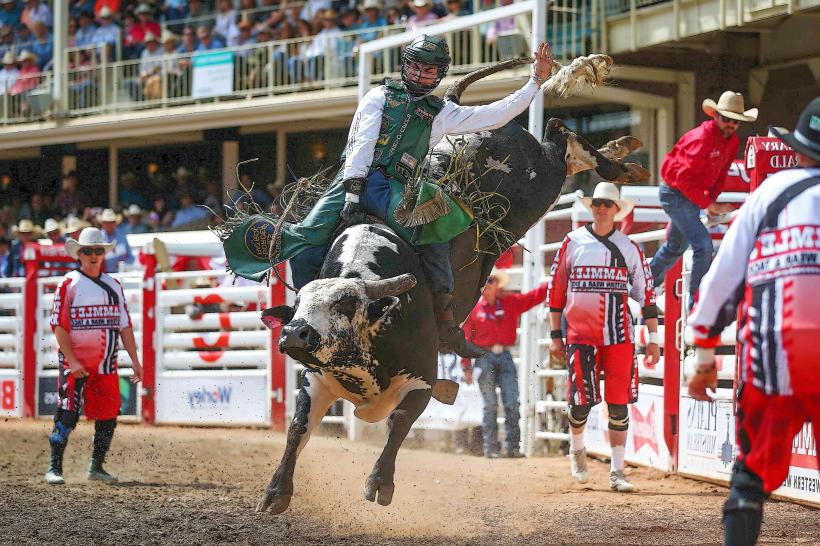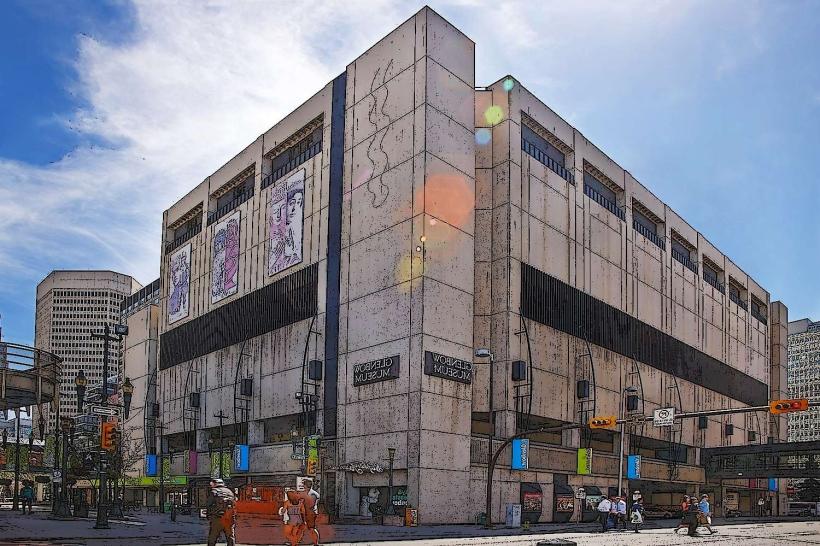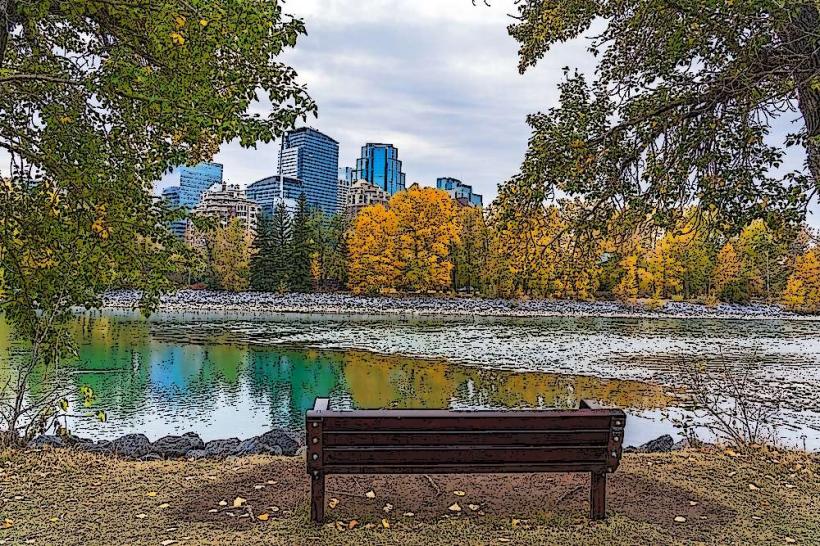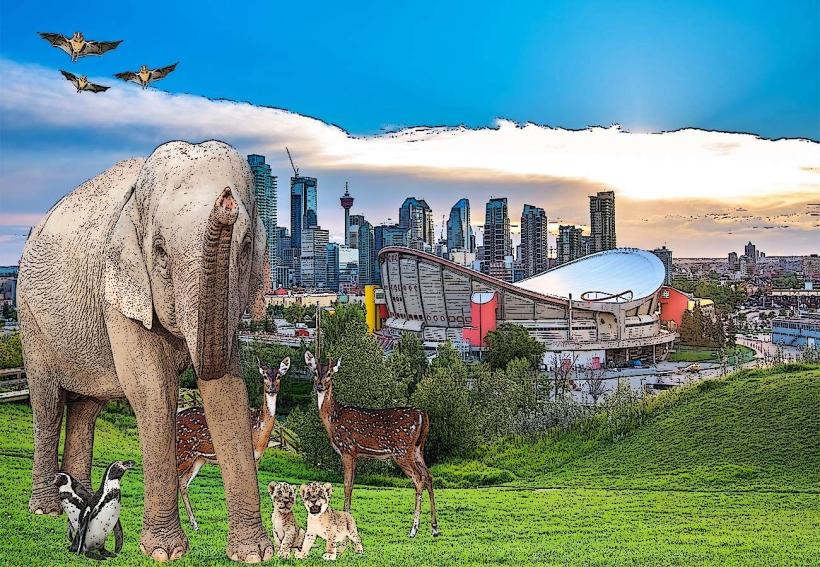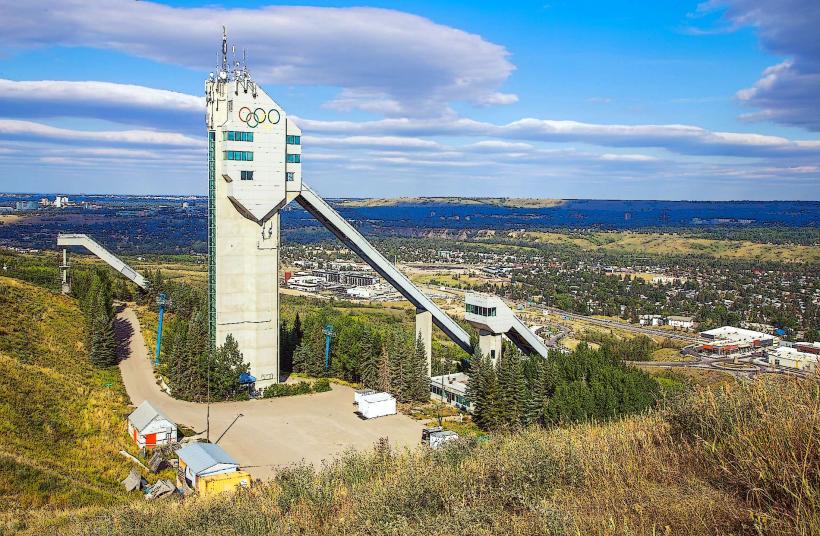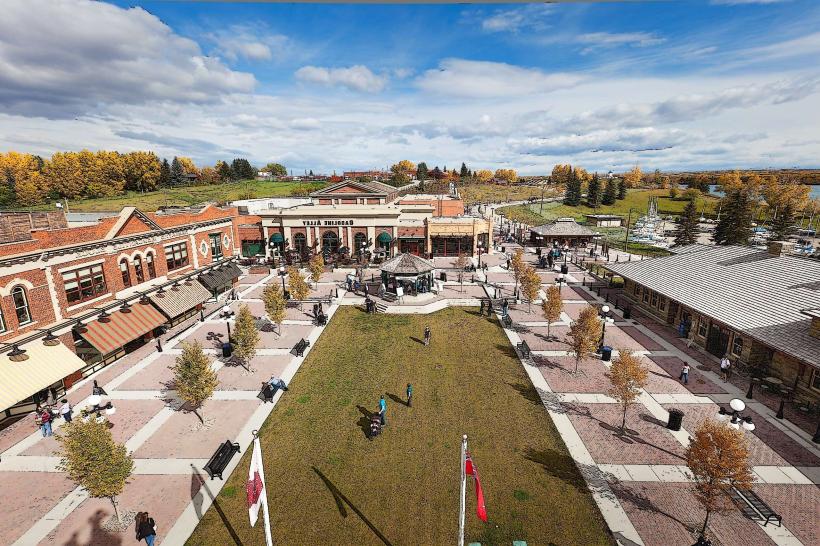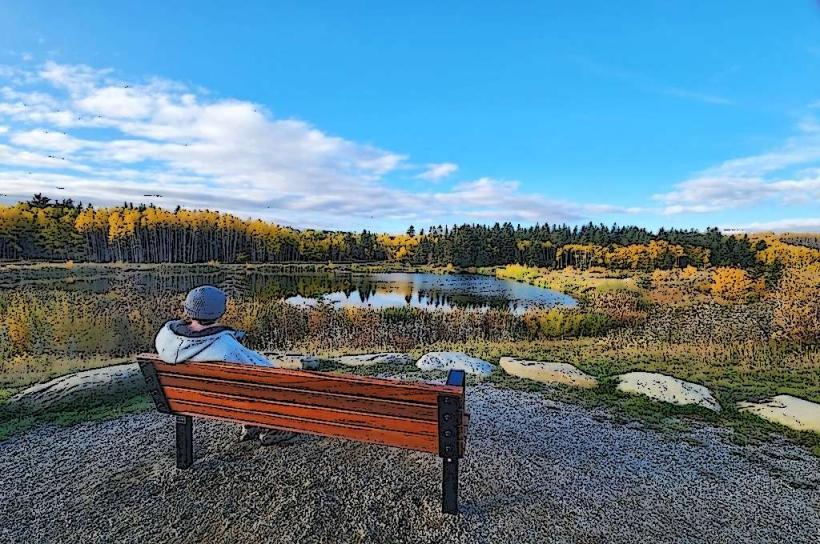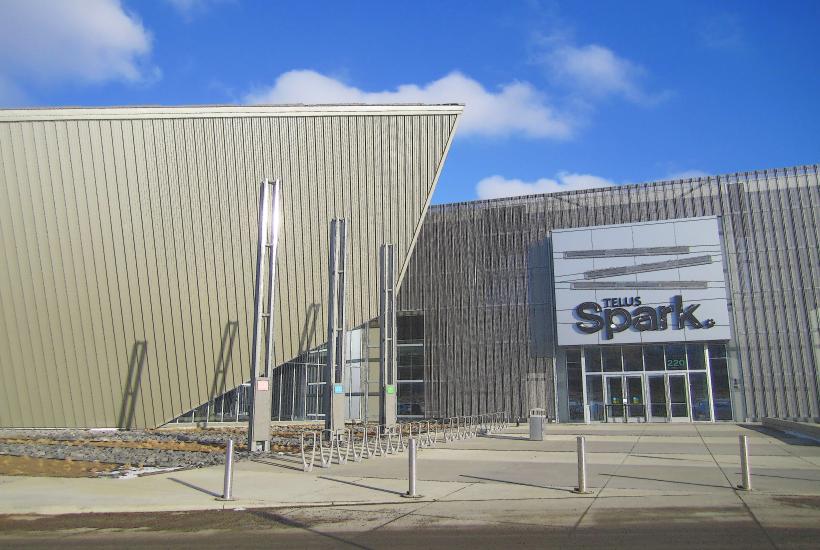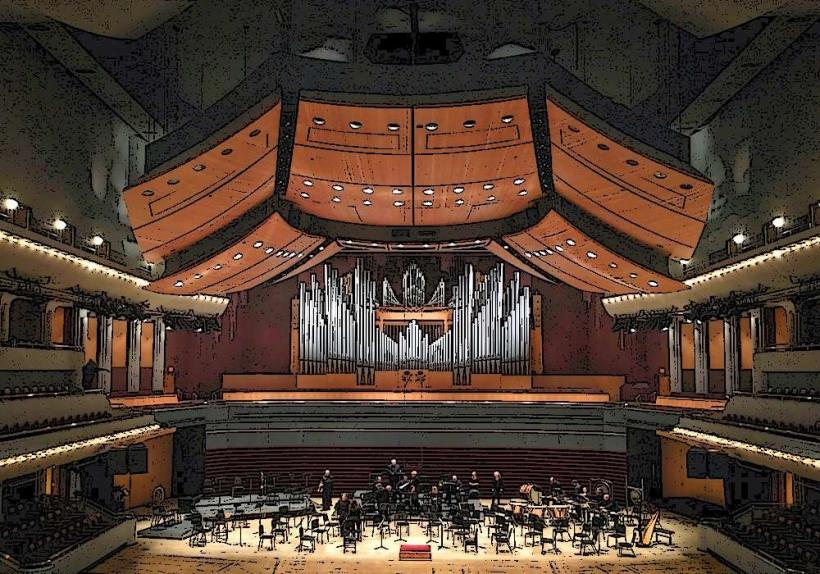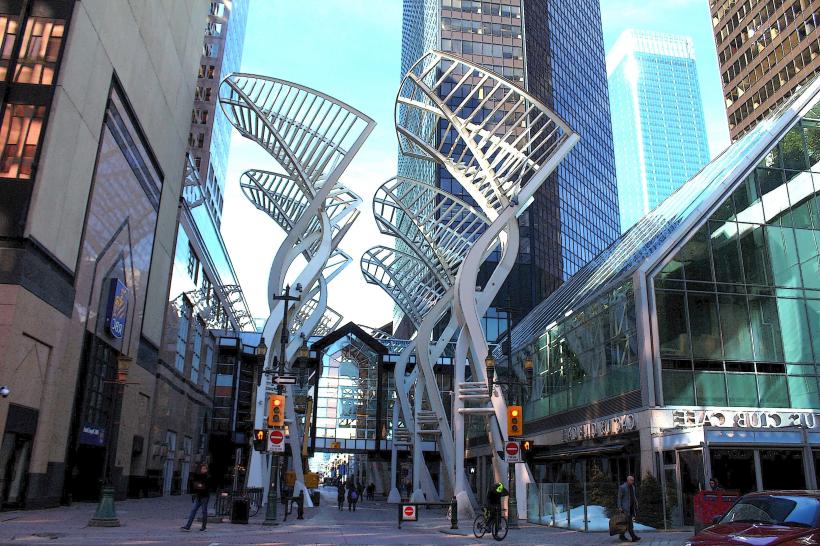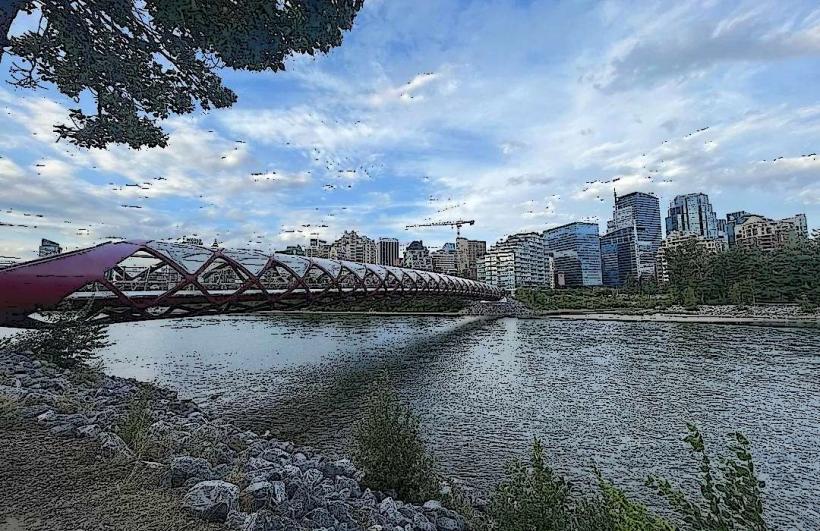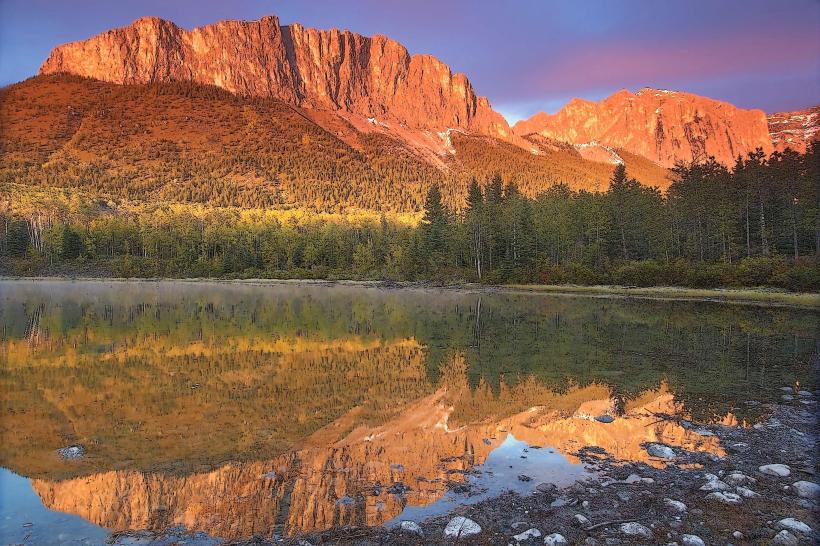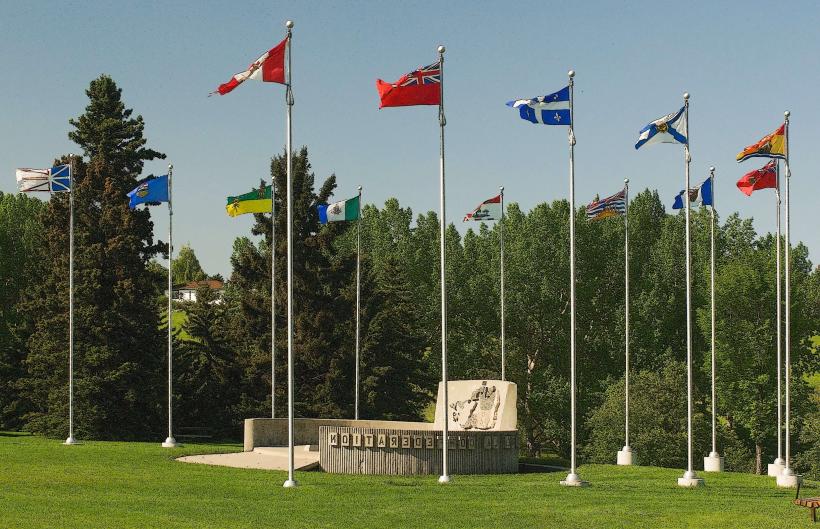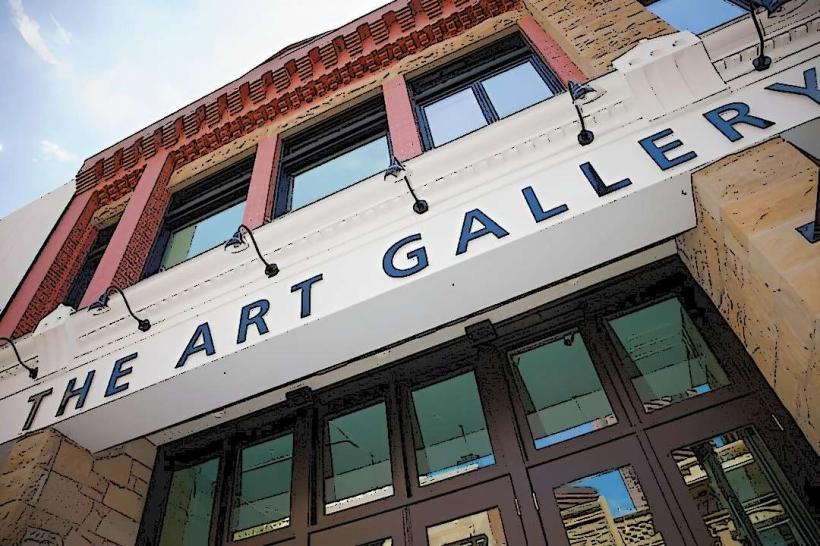Information
Landmark: Royal Tyrrell MuseumCity: Calgary
Country: Canada
Continent: North America
Royal Tyrrell Museum, Calgary, Canada, North America
The Royal Tyrrell Museum is one of Canada’s premier institutions dedicated to the study and display of paleontology. Located in Drumheller, Alberta, in the heart of the Badlands, the museum is renowned for its extensive collection of dinosaur fossils and its educational programs. It is one of the world's most significant dinosaur museums, attracting visitors from around the globe who are fascinated by ancient life forms.
Overview of the Royal Tyrrell Museum
Location: The Royal Tyrrell Museum is situated in Drumheller, Alberta, about 130 kilometers northeast of Calgary. The museum's location in the Canadian Badlands is significant, as this region is known for its rich paleontological history and has yielded many significant dinosaur fossil discoveries.
History: The museum opened in 1985 and is named after Dr. Joseph Tyrrell, a Canadian geologist and paleontologist who discovered the first dinosaur fossils in the area in 1884. The museum is operated by Alberta Culture and Tourism, and its mission is to preserve and showcase the fossil heritage of Alberta and to educate the public about the history of life on Earth.
Collections: The museum houses one of the most comprehensive and impressive collections of dinosaur fossils in the world, showcasing thousands of specimens from the Mesozoic Era (the "Age of Dinosaurs"). The museum's collection is constantly being updated through fieldwork and research, and many of the fossils on display were discovered in the surrounding region.
Key Features of the Royal Tyrrell Museum
1. Dinosaur Exhibits
The museum is best known for its dinosaur exhibits, which feature fossilized remains of many of the species that once roamed Alberta. The exhibits are carefully curated and designed to educate visitors about the prehistoric past, providing insight into the evolution of life on Earth.
Famous Fossils: Some of the museum's most famous exhibits include fossils of well-known dinosaurs such as:
Tyrannosaurus rex: The museum has one of the most complete specimens of T. rex ever found, offering an up-close look at one of the most fearsome predators in history.
Albertosaurus: This cousin of the T. rex was discovered in Alberta and provides a glimpse into the lives of theropod dinosaurs that lived in the area millions of years ago.
Triceratops: The museum features numerous ceratopsid dinosaurs, including the iconic Triceratops, showcasing the plant-eating dinosaurs that once roamed Alberta's forests.
Interactive Displays: Many exhibits are designed to be interactive, allowing visitors to engage with the fossil specimens and learn about the species' behavior, anatomy, and environment. Some displays include touchable fossil replicas and life-sized reconstructions of dinosaurs.
2. Fossil Displays and Life-Size Models
In addition to actual fossils, the museum displays life-size models of dinosaurs and other prehistoric creatures. These models help visitors visualize what these creatures looked like when they roamed the Earth. Visitors can walk through exhibits featuring life-size replicas of dinosaurs such as Stegosaurus, Spinosaurus, and Allosaurus.
Dinosaur Galleries: The museum features several galleries that highlight different periods of the Mesozoic Era, including the Triassic, Jurassic, and Cretaceous periods. These galleries provide a timeline of the evolution of dinosaurs and their environments.
Dinosaur Trackways: The museum also showcases fossilized footprints of dinosaurs, giving visitors a glimpse into the behavior and movement of prehistoric animals.
3. Fossil Preparation Lab
One of the most exciting aspects of the museum is the Fossil Preparation Lab, where visitors can observe paleontologists at work. The lab is where new fossils are cleaned, prepared, and studied before they are put on display. Occasionally, the public can watch live demonstrations and learn about the process of fossil extraction and preparation.
4. The Badlands and Fieldwork
The Royal Tyrrell Museum is situated in one of the world’s most significant paleontological sites, the Badlands of Alberta, which are rich in fossils from the Cretaceous period. The museum regularly conducts fieldwork in the region, and some of its most important fossils were discovered nearby. Visitors can learn about the museum’s fieldwork and research programs through exhibits and educational presentations.
Field Trips: The museum offers educational programs and field trips where visitors can explore the Badlands with professional paleontologists and learn about the region's fossil sites.
The Dinosaur Trail: The Dinosaur Trail in the surrounding area features several fossil sites and other attractions related to the study of dinosaurs. This self-guided driving route offers stops at places where dinosaur fossils have been discovered, and it gives visitors the chance to explore the natural landscape that was home to dinosaurs millions of years ago.
Interactive and Educational Programs
The Royal Tyrrell Museum is dedicated to education, offering a range of interactive and hands-on programs that allow visitors to engage with paleontology.
1. Dinosaur Discovery Camp
For young visitors, the museum offers the Dinosaur Discovery Camp, where kids can engage in activities such as fossil excavation, rock and mineral identification, and learning about prehistoric creatures. The camp is designed to inspire future paleontologists.
2. School Programs
The museum offers a variety of educational programs for school groups, including guided tours, workshops, and hands-on learning experiences. Students can learn about paleontology, geology, and the history of life on Earth through interactive exhibits and real fossil specimens.
3. Special Exhibits and Events
Throughout the year, the Royal Tyrrell Museum hosts temporary exhibits that focus on different aspects of paleontology and natural history. These exhibits often include new discoveries and special topics, such as mammals of the Ice Age or the age of marine reptiles.
The museum also hosts lectures, workshops, and special events that bring in experts from around the world to share their knowledge of paleontology and other related fields.
4. Gift Shop and Café
The Royal Tyrrell Museum has a gift shop where visitors can purchase a variety of dinosaur-themed merchandise, including books, fossils, toys, and educational materials. There’s also a café on-site, offering a place to relax and enjoy a meal after exploring the museum.
Visitor Information
Hours of Operation: The museum is generally open year-round, though hours may vary depending on the season. It is best to check the museum’s website for current operating hours before planning a visit.
Admission: Admission to the Royal Tyrrell Museum is usually charged, with discounted rates for children, seniors, and families. The museum may also offer free admission days or special discounts during certain times of the year.
Location and Accessibility: The museum is located at 1500 North Dinosaur Trail, Drumheller, Alberta. It is easily accessible by car, and parking is available on-site. The museum is wheelchair accessible, and the exhibits are designed to accommodate visitors with mobility challenges.
Conclusion
The Royal Tyrrell Museum in Drumheller is an outstanding destination for anyone interested in dinosaurs, paleontology, and natural history. Its impressive fossil collection, interactive exhibits, and educational programs make it one of the top attractions in Alberta and a must-visit for anyone with an interest in the prehistoric world. Whether you’re a science enthusiast, a family with kids, or someone looking to explore the Badlands, the museum offers a fascinating and enriching experience.


